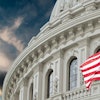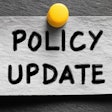
In just a few months -- January 1, 2016, in fact -- two new mandatory Medicare billing requirements will take effect for physicians and hospitals. The goal of these requirements is to help the U.S. Centers for Medicare and Medicaid Services (CMS) collect data on the frequency of, type of, and payment for services furnished in off-campus provider-based hospital departments. It needs to know to what extent services are shifting toward hospital-based physician practices.
As stated in the 2015 Medicare Physician Fee Schedule (MPFS) final rule, CMS continues to "seek a better understanding regarding the growing trend toward hospital acquisition of physicians' offices and how the subsequent treatment of those locations as off-campus provider-based outpatient departments affects payments under PFS and beneficiary cost-sharing."
 Jeff Majchrzak of Panacea Healthcare Solutions.
Jeff Majchrzak of Panacea Healthcare Solutions.In an American College of Radiology (ACR) article, Pam Kassing and co-authors explain that CMS "intends to compare this data to costs built into the payments made to physicians' offices/independent diagnostic testing facilities (IDTFs) under MPFS."
The Medicare Payment Advisory Commission (MedPAC) added fuel to CMS' motivation in its March 2012 and June 2013 report to Congress, questioning the appropriateness of increased Medicare payment and beneficiary cost-sharing when physician offices become hospital outpatient departments.
It recommended that Medicare pay selected hospital outpatient services at MPFS rates, and, as Kassing and colleagues report, "If the costs in the hospital setting are the same or lower, CMS will accept a recent MedPAC recommendation to cut these payments to match what is paid to physician offices/IDTFs."
This, they say, "places further importance on how much hospital finance staff should focus on the accuracy of the cost and charge data they report to Medicare. The quality of data submitted directly equates to the quality of payments a hospital will receive."
In addition to seeking a better understanding of new trends, CMS expressed its concern about the validity of its resource data in the 2015 MPFS final rule.
"As more physician practices become hospital-based, it is difficult to know which practice expense (PE) costs typically are actually incurred by the physician, which are incurred by the hospital, and whether our bifurcated site-of-service differential adequately accounts for the typical resource costs given these relationships," the agency stated.
With the above goals in mind, CMS created a new modifier for hospitals to report, and a new place-of-service (POS) code for physicians to report. It also revised one POS code description.
For hospital reporting
Hospitals must use the new "PO" modifier (services, procedures, and/or surgeries furnished at off-campus provider-based outpatient departments) with every Healthcare Common Procedure Coding System (HCPCS) code for all outpatient items and services furnished in an off-campus provider-based department of a hospital.
However, it should not be reported for remote locations or satellite facilities of a hospital, or for emergency room services (which should continue to be reported with POS code 23).
In provider-information memo MM9205 (issued June 5, 2015), CMS clarified the definition of a hospital "campus" as follows: "The physical area immediately adjacent to the provider's main buildings, other areas and structures that are not strictly contiguous to the main buildings but are located within 250 yards of the main buildings, and any other areas determined on an individual case basis, by the CMS regional office, to be part of the provider's campus."
Determining the requirements for "provider-based status" -- another facet of the new requirements -- can be found in section 413.65 of the Code of Federal Regulations.
The Medicare Claims Processing Manual (chapter 4, section 20.6.11) will also be updated to reflect this information.
For physician reporting
On the professional side, physicians must use either new POS code 19 or revised POS code 22 on all health insurance claims they submit to Medicare Part B contractors.
| New/revised codes for physician reporting | |
| POS code 19 | A portion of an off-campus hospital provider-based department which provides diagnostic, therapeutic (both surgical and nonsurgical), and rehabilitation services to sick or injured persons who do not require hospitalization or institutionalization. |
| POS code 22 | A portion of a hospital's main campus which provides diagnostic, therapeutic (both surgical and nonsurgical), and rehabilitation services to sick or injured persons who do not require hospitalization or institutionalization. |
According to CMS, reporting the above is a "minimum requirement to trigger the facility payment amount under the PFS when services are provided to a registered outpatient" and physicians must use POS code 19 or 22 when they furnish services to a hospital outpatient "regardless of where the face-to-face encounter occurs."
The following billing details are also included in the memo:
- The three-day payment rule will also apply to services billed with POS code 19. Payments for services provided to outpatients who are later admitted as inpatients within three days (or, in the case of noninpatient prospective payment systems [IPPS] hospitals, one day) are bundled when the patient is seen in a wholly owned or wholly operated physician practice. The three-day payment window applies to diagnostic and nondiagnostic services that are clinically related to the reason for the patient's inpatient admission, regardless of whether the inpatient and outpatient diagnoses are the same.
- Claims for covered services rendered in an off-campus outpatient hospital setting (or in an on-campus outpatient hospital setting, if payable by Medicare) will be paid at the facility rate. The payment policies that currently apply to POS 22 will continue to apply to this POS, and will now also apply to POS 19 unless otherwise stated.
For the above information about new POS codes, see MLN Matters No. MM9231.
The Medicare Claims Processing Manual (chapter 4, section 20.6.11) will also be updated to reflect this information.
Jeff Majchrzak is vice president of clinical consulting services, radiology, for Panacea Healthcare Solutions. In his role as consultant, he conducts CPT coding assessments for both hospitals and physicians, evaluates administrative policies and procedures, and helps develop quality assurance programs to ensure complete and compliant coding and billing. Jeff trains both radiology and cardiology staff (on both technical and professional billing issues) in correct coding practices. Jeff contributes to numerous publications by MedLearn Publishing (a division of Panacea) and is a sought-after national speaker on coding and reimbursement for radiology, interventional radiology, nuclear medicine, and cardiology. Jeff can be reached at [email protected], or visit Panacea Healthcare Solutions at www.panaceahealthsolutions.com.
The comments and observations expressed herein are those of the author and do not necessarily reflect the opinions of AuntMinnie.com.



















